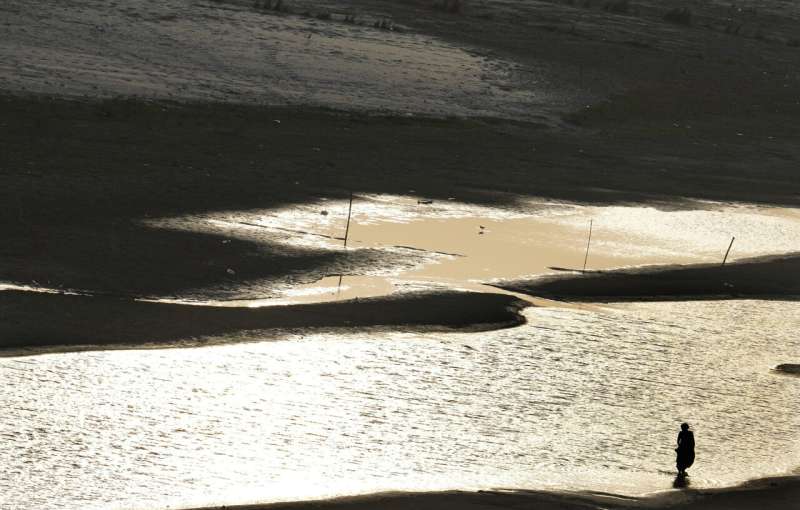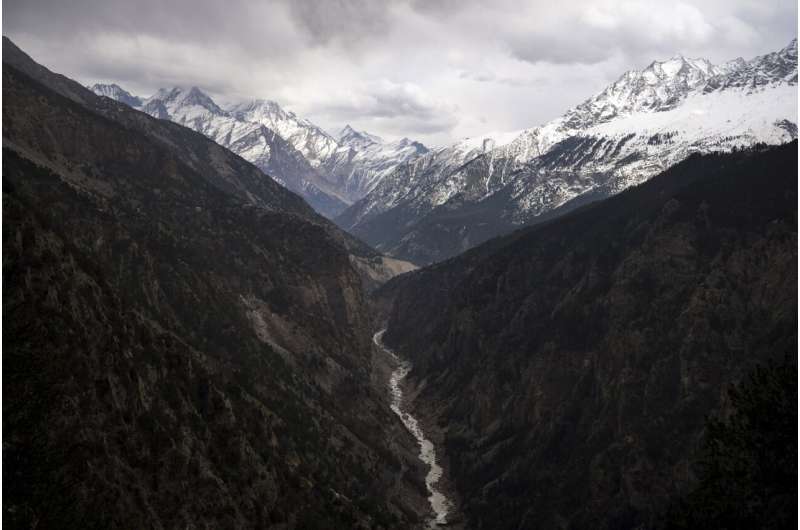Himalayan glaciers could lose 80% of their volume if global warming isn’t controlled, study finds

Glaciers are melting at unprecedented rates across the Hindu Kush Himalayan mountain ranges and could lose up to 80% of their volume this century if greenhouse gas emissions aren’t sharply reduced, according to a report.
The report Tuesday from Kathmandu-based International Centre for Integrated Mountain Development warned that flash floods and avalanches would grow more likely in coming years, and that the availability of fresh water would be affected for nearly 2 billion people who live downstream of 12 rivers that originate in the mountains.
Ice and snow in the Hindu Kush Himalayan ranges is an important source of water for those rivers, which flow through 16 countries in Asia and provide fresh water to 240 million people in the mountains and another 1.65 billion downstream.
“The people living in these mountains who have contributed next to nothing to global warming are at high risk due to climate change,” said Amina Maharjan, a migration specialist and one of the report’s authors. “Current adaptation efforts are wholly insufficient, and we are extremely concerned that without greater support, these communities will be unable to cope.”
Various earlier reports have found that the cryosphere—regions on Earth covered by snow and ice—are among the worst affected by climate change. Recent research found that Mount Everest’s glaciers, for example, have lost 2,000 years of ice in just the past 30 years.

“We map out for the first time the linkages between cryosphere change with water, ecosystems and society in this mountain region,” Maharjan said.
Among the key findings from Tuesday’s report are that the Himalayan glaciers disappeared 65% faster since 2010 than in the previous decade and reducing snow cover due to global warming will result in reduced fresh water for people living downstream. The study found that 200 glacier lakes across these mountains are deemed dangerous, and the region could see a significant spike in glacial lake outburst floods by the end of the century.
The study found that communities in the mountain regions are being affected by climate change far more than many other parts of the world. It says changes to the glaciers, snow and permafrost of the Hindu Kush Himalayan region driven by global warming are “unprecedented and largely irreversible.”
Effects of climate change are already felt by Himalayan communities sometimes acutely. Earlier this year the Indian mountain town of Joshimath began sinking and residents had to be relocated within days.

“Once ice melts in these regions, it’s very difficult to put it back to its frozen form,” said Pam Pearson, director of the International Cryosphere Climate Initiative, who was not involved with the report.
She added, “It’s like a big ship in the ocean. Once the ice starts going, it’s very hard to stop. So, with glaciers, especially the big glaciers in the Himalayas, once they start losing mass, that’s going to continue for a really long time before it can stabilize.”
Pearson said it is extremely important for Earth’s snow, permafrost and ice to limit warming to the 1.5 degrees Celsius agreed to at the 2015 Paris climate conference.
“I get the sense that most policymakers don’t take the goal seriously but, in the cryosphere, irreversible changes are already happening,” she said.
© 2023 The Associated Press. All rights reserved. This material may not be published, broadcast, rewritten or redistributed without permission.
Citation:
Himalayan glaciers could lose 80% of their volume if global warming isn’t controlled, study finds (2023, June 20)
retrieved 20 June 2023
from https://phys.org/news/2023-06-himalayan-glaciers-volume-global-isnt.html
This document is subject to copyright. Apart from any fair dealing for the purpose of private study or research, no
part may be reproduced without the written permission. The content is provided for information purposes only.
For all the latest Science News Click Here
For the latest news and updates, follow us on Google News.

